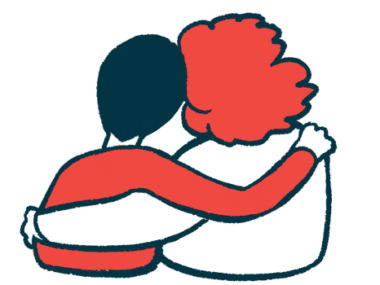I finally understand my daughter’s fear of missing out
No matter our age, 'sticking out' because of health issues can be unnerving
Written by |

“I need you,” the school nurse said over the phone. “And bring the nebulizer.”
Before I ended the call, I was headed out the door with the required machinery. The destination? The school of our oldest daughter, whom we lovingly call Ladybug.
I’d become familiar with these emergency runs. Before her hereditary angioedema (HAE) diagnosis in 2021, I’d spent most of my time picking her up for what we thought were unexplained facial swelling and painful stomachaches. But that day, I was somewhat relieved to drive to the rescue for something that could be easily solved.
When I finally entered the school clinic, I saw Ladybug sitting in a chair, laboring to breathe, but not in immediate danger. After a nebulizing treatment, she was better, but I checked her out of school. The asthma attacks that required her to use her trusty machine usually exhausted her.
At the time, even though I couldn’t explain any of the other symptoms that seemed to plague her randomly, her asthma was under control. What could’ve happened at school to lead to a near emergency?
“You didn’t feel the attack coming?” I asked as I drove her home.
“I didn’t want to stop playing,” she said matter-of-factly. “None of my friends have asthma, and I don’t like sticking out.”
I was baffled. My daughter was willing to go to the brink of death because she didn’t want to be different. How ridiculous adolescent reasoning can be.
That’s what I thought then.
Once we knew about Ladybug’s HAE, I assumed that her desire to be what society deemed “normal” would subside. Yet she’d often avoid letting us know she wasn’t feeling well if it meant that someone around her would discover something was wrong. Trying to convince her to think otherwise was futile.
“Are you OK?” my husband asked me recently as we sat on the patio of one of my favorite restaurants.
After dinner with 11 other family members, we were enjoying the sunset while I attempted to ignore my breathing difficulty caused by the humidity.
“You need your inhaler?” my husband asked.
I shook my head no.
But I did need it. The air felt thick and my breathing shallow, but pulling out the bright-red inhaler at a table full of people seemed worse.
It wasn’t until later, in the safety of our air-conditioned van after taking some much-needed puffs, that I realized age had nothing to do with my daughter’s desires.
Even in my 40s, surrounded by people who’d completely understand, I wanted to be like everyone else. No one else at the table, including Ladybug, needed extra help breathing. The thought of sticking out was unnerving. And the weirdest part is, I didn’t know why. Yet I feel like this event makes me a better caregiver.
Sure, I sympathize with Ladybug when she has to sit through Berinert infusions or hospital stays. It was easy to coach her through her discomfort during her Takhzyro (lanadelumab) injections. But now, I know exactly how she feels about not wanting to be defined by her illness. Empathy shifted my perspective.
It may take a while, but I’ll try to lead by example. Because sometimes, the best way to change the behaviors of our little patients is to tell them, “I understand.”
Note: Angioedema News is strictly a news and information website about the disease. It does not provide medical advice, diagnosis, or treatment. This content is not intended to be a substitute for professional medical advice, diagnosis, or treatment. Always seek the advice of your physician or other qualified health provider with any questions you may have regarding a medical condition. Never disregard professional medical advice or delay in seeking it because of something you have read on this website. The opinions expressed in this column are not those of Angioedema News or its parent company, Bionews, and are intended to spark discussion about issues pertaining to angioedema.




Leave a comment
Fill in the required fields to post. Your email address will not be published.